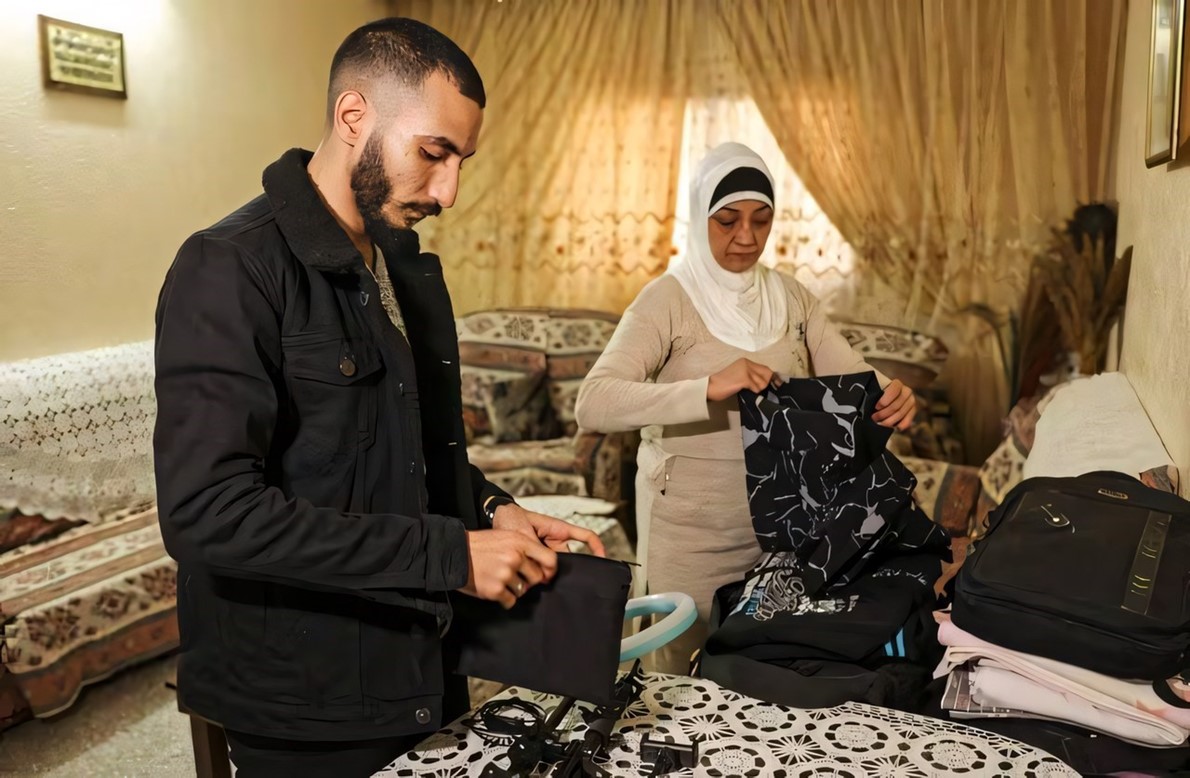Ameera
Malkash, a 40-year-old mother of three, fled one war only to find herself in
another.
In 2012,
Malkash was living in Damascus and was desperate to escape the civil war in
Syria. She and her husband, Elian Fayyad, made a fateful decision: They would
seek safety in the
Gaza Strip, which he had left when he was 17.
اضافة اعلان
“The war
was getting very close to where I lived with my family,” Malkash recalled about
Syria at the time. “The bombardments were very intense and very close.”
Now war
has come to them again. After Hamas’ Oct. 7 attacks prompted Israel to launch a
retaliatory military offensive, Malkash and her children fled their home in
southern Gaza for a makeshift refugee camp set up in a school. Then, as Israeli
forces intensified their attacks in the south, she and her children sought
refuge at a shelter in
central Gaza. (Fayyad, her husband, died of cancer soon
after the family arrived in Gaza in 2012.)
“There is
no life here, no future,” Malkash said by phone recently. She left school after
seventh grade and has never worked. Even before the war, she said, she lived on
charity in Gaza, which has long been blockaded by Israel and Egypt and where
even longtime residents struggled to find work.
Since the
war began, many people who held foreign passports have left Gaza after their
countries secured permission from the Israeli government. But that did not
include Syrians, leaving Malkash and her children trapped — like more than two
million others in Gaza.
Malkash
and her children, who were living in Al Qarara, east of Khan Younis in
southern Gaza, first took shelter at the nearby Al Hinawi school, run by the United
Nations, along with more than 5,000 others.

Her
eldest son, Solaiman, 16, began suffering from severe stomach pains, but the
nearest hospital turned him away because it was receiving “too many
casualties,” she recalled. “They gave him some medicine and dispatched him.”
Solaiman
recovered, but Malkash said she feared for her children's health. UN officials
report soaring cases of diarrhea, respiratory infections, meningitis, and other
illnesses in Gaza.
Malkash,
whose Syrian passport has expired, said she would apply for a Palestinian
passport after the war so she could leave Gaza for good. But she doesn’t know
where to go. Syria was not an option, she said.
“Things
in Gaza have always been harsh, but things in Syria have been extremely bad
too,” Malkash said. She recently spoke to her sister-in-law there, who said she
hadn’t had a decent meal in three years.
As the
war rages, Malkash dreams of simple pleasures in a new home. “I want a place
where I can feel alive and enjoy peace,” she said.



